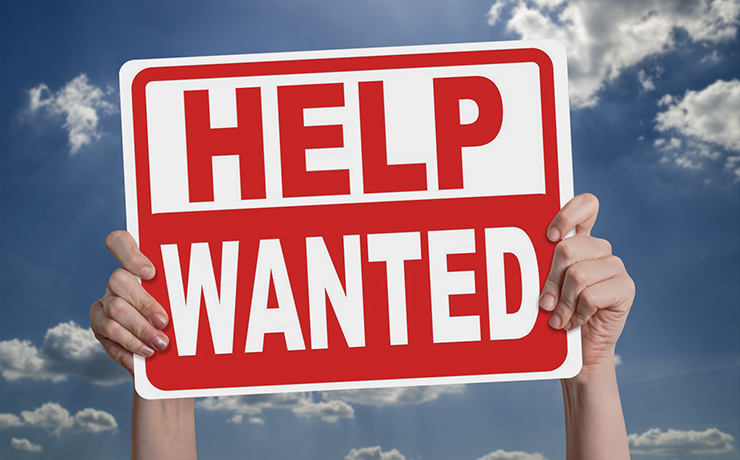ENTER YOUR EMAIL TO RECEIVE OUR WEEKLY NEWSLETTER
Learning to Ask Others for Help
Many of us are happy to help others when they need help, but often we are reluctant to ask others for help when we need it. How to overcome your reluctance to ask for assistance.
By Claire Berman

It’s 4:30 on a brisk November afternoon in New York. I’ve just had my hair done (East Side) and am hoping to hail a cab home (West Side), but every passing taxi is either taken or “off duty.” Thinking I might have better luck at a busier intersection, I head toward the corner where, three steps from the curb, I freeze—unable to move backward or forward. (Dammit, it’s my Parkinson’s acting up.) Anxiety keeps me rooted to the spot as people rush by, eager to make the next light. What to do? Summoning all my courage, I waylay a thirty-something woman carrying a heavy canvas tote, and tell her about my Parkinsons, half-expecting her to say, “Sorry, I’m really late” (after all, she doesn’t know me, doesn’t owe me anything), but she doesn’t beg off. Instead, she snakes her way through the slow-moving traffic and, finding no available cabs, she flags down an empty limo and tells the driver about what has now become “our” problem. Will he help? She’s quite persuasive and I hold my breath ’till he says “Yes.” Two strangers this day have taught me an important lesson: It’s okay to ask for help.
Which is not to say that it’s easy. Many of us are happy to help others (it makes us feel good about ourselves), yet I, for one, and people like me have a hard time being on the receiving end: Asking others for help when we’re the ones who need it. “The irony of this is something I see all the time,” says motivational speaker Mike Robbins, who is based in California. “When I’m giving a presentation, I will frequently ask the audience, ‘How many of you like helping other people?’ And almost everybody in the room raises their hand. The next question I ask is, ‘How many of you like asking other people for help?’ And maybe ten percent of hands (if that many) go up.”
I know what Robbins means. A short while back, I received a call from Meg, a friend and fellow book club member, asking if I would go with her to an upcoming doctor’s appointment. Though Meg has been cancer-free for close to two decades, she explained, “I still get nervous when I know I’ll be hearing the results of new tests and I don’t want to be alone. If the report is good, I’ll treat you to lunch.” “I’ll be there,” I said without hesitation. “No inducement needed.” If anything, Meg’s trust in me drew us closer as friends. [The news, fortunately was good as was the lunch!] Why then do I balk asking friends to accompany me to a doctor, attend a lecture or, simply visit the hairdresser? Why do so many of us resist asking for help when we need it? I decide to find out.
Fear of being viewed as vulnerable: “Requesting support can make us feel vulnerable,” says Mike Robbins. “We usually think (somewhat erroneously) that we should be able to do everything ourselves and by admitting that we need help, we are somehow being needy or incompetent. For men, especially, there’s a lot of fear of any perception of being weak. In fact, asking for help is not an indication of weakness; it’s a sign of strength.”
Fear of rejection: But what if we ask and the person we approach turns us down? Whether it’s about our personal or professional lives, we don’t want to feel embarrassed or humiliated. In fact, the fear of being rejected leads many of us to go it alone, even if we know this may not be the wisest course to take. So here’s the good news: according to a study by Francis Flynn and Vanessa Bohns, we dramatically underestimate how likely others are to help us. The authors explain, “What people fail to fully appreciate is that although it’s difficult for help seekers to risk rejection, it is also difficult for potential helpers to offer rejection.” The researchers’ conclusion: Most people will comply with a direct request for help.
Surprisingly, another study suggests that the best person to go to when you need help may well be the very same naysayer who turned you down when you asked him or her previously. The reason may seem counterintuitive, but here’s why: Feeling guilty about their first refusal, people are more likely to say ‘yes’ when asked a second time.
Fear of the loss of control: “Getting someone else to help me might mean the job won’t be done the way I like.” The speaker could be a forty-something lawyer who spends evenings and weekends dealing with papers piled up on her desk or a 70 plus retiree whose kids have been bugging her to hire an assistant. Like these women, many of us do not avail ourselves of the help that we need because (though we won’t admit it) we’re unwilling to cede any power to others. Confession time: I plead guilty to this one. During my long career as a freelance writer, there have been times when I had to juggle multiple deadlines…driving myself and my three children and husband crazy. Refusing to hire someone to transcribe my many tape-recorded interviews (a tedious job at best, worse if you’re a slow typist), I stayed up late, slept late, and played havoc with my family’s plans and schedules. But, I explained, nobody else was capable of interpreting the pauses on the tapes. (Is it too late for apologies to my family?)
We don’t ask because we think that people ought to know. Clarisse, 53, is a good daughter—she takes personal days off from work as a legal secretary to escort her mother, who has breast cancer and arthritis, to medical treatments and checkups. This means rushing home each evening to check on her mom and spending weekends tending to her mother’s needs: cooking, cleaning and playing endless rounds of Rummy 500 to help the time go by. It means bundling her mother up and getting her to church every Sunday.
“I can’t remember the last time I went to a movie or met friends for lunch,” Clarisse says. “It would be wonderful if some of the church ladies could spend a Saturday afternoon with my mom.” Has she asked them for help? “”No,” she tells me, fairly bristling. “They can see what the situation is.” If she truly wants help in managing her mother’s care, however, she will have to ask for it.
. . . . . . . . . . . .
Guidelines on making it easier to ask others for help:
First and foremost, you have to ask! Wishful thinking may protect Clarisse’s pride and privacy. But according to one study, people who could offer assistance said they were much more likely to help if they were asked point blank.
Be as specific as you can about what you need and how much time it may involve: This gives the person you are asking a clearer idea of what you want so that he or she can make the commitment.
In so far as is possible, be flexible: If the person you ask cannot make it on Monday, ask if another time will work for him or her. Let the helper know there are options.
Politely provide an out such as: “I understand that you’re busy and if you can’t make it this time I’ll still love/like/respect you.” Keep the door open.
If they accept, try not to micromanage. Give your helper some leeway. Nobody will do it exactly your way. And you may even learn something!
Tell the help giver that you truly value her or his assistance. In short: Say thank you—a lot.
. . . . . . . . . . . .
Claire Berman has written nine books on such topics as caregiving, divorce, step parenting, and adoption. She was a contributing editor at New York magazine and has written for The New York Times magazine, Parade, Reader’s Digest, and other national magazines.












February 27th, 2017 at 11:30 am
What a wonderful, helpful article! To those of us who need help — and those of us who want to give it.
February 28th, 2017 at 12:49 pm
Terrific piece. Great advice, which I’ll follow. I’d also welcome an article from Claire that tackles how to deal with what seems to be an increase in, let’s say, the opposite of helpfulness–rudeness–in NY lately and, I hear, all over the country. Speak up? Take it in stride? Take the perpetrator to task vocally, in the subway, for instance? I’ve witnessed that–with other passengers reacting with annoyance at being distracted for any reason from their cell phones.
March 1st, 2017 at 1:51 am
Provided insights into the points of view of the helper and the one needing help. I recently asked a person, a stranger, to help me cross the street in slush due to melted snow. He thanked me for asking him.